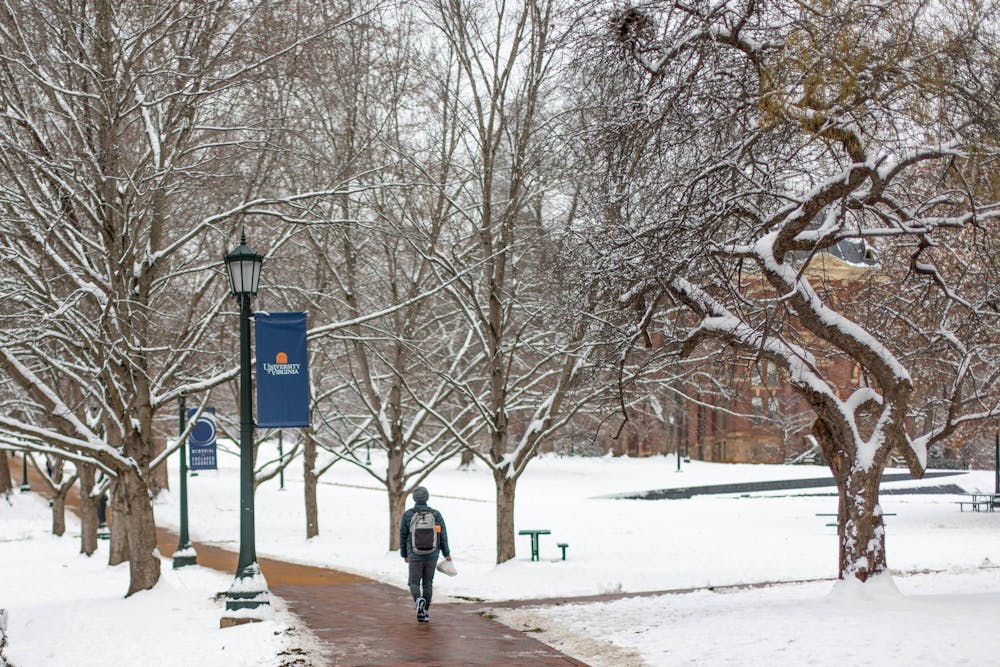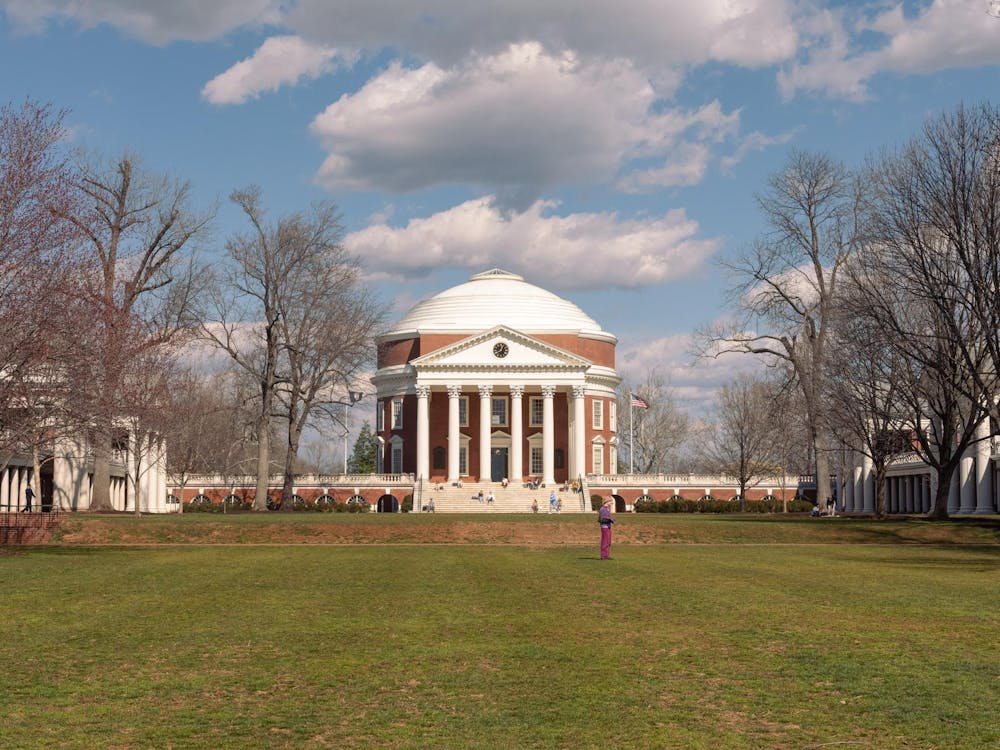January Term courses, both on-Grounds and abroad, concluded this weekend. Over 830 students participated in 42 U.S.-based courses, spanning topics from printmaking to neuroscience research, according to Janelle Jennings, director of summer and special academic programs.
J-term courses — often composed of a small number of students with daily, longer course periods to fit within the two weeks before spring classes begin — provide students with an opportunity to earn class credit towards their degree or major program. On-Grounds and online J-term courses are run by the Office of the Executive Vice President and Provost while programs abroad are run by the International Studies Office. Students participating in J-Term courses are eligible for financial aid, but direct grants may be limited.
Jennings said the initial idea behind J-term courses, offered by the University since 2005, was to give students and faculty an opportunity to delve into a topic in a more immersive and concentrated format. She also shared that over the years the University has expanded the range of departments and schools through which classes are offered. The availability of different formats has also increased — courses are offered online, on-Grounds, internationally and through domestic trips.
“We’ve really been able to expand the scope of what [the University] initially thought of in 2005,” Jennings said. “We're really able to offer, through the short term courses that the ISO heads up, as well as the domestic courses, a real plethora of options for students that want to engage with us during that term.”
International programs, most of which began late December, are offered through the ISO as an option for students interested in spending their J-Term abroad. This year, 24 abroad programs took place in over 20 countries, across several continents.
One two-week long course which concluded Jan. 10 was “U.Va. in London: The Theatrical City.” The program’s goal is to introduce students to the rich theatre and performance culture in the city. Students have the opportunity to attend numerous plays and musicals in London as a core component of the course. For the last four years, the program has been co-taught by Department of English Professors Lisa Goff and Stephen Arata.
During their time in London, students attended eight evening shows — including Shakespeare plays and new musicals on the West End —and then discussed these shows in class each morning.Goff said that she and Arata enjoy teaching students with a diversity of backgrounds and experience traveling abroad.
“I think [the program] appeals to students, perhaps that haven't done as much traveling abroad. It's a smaller bite to travel to a country where everyone speaks the same language,” Goff said.
Third-year College student Keoni Vega said he applied to the program because he had never been to England before and thought the class would be a great way to explore London museums and shows with other students. Vega also shared that his time in London inspired him to look into studying abroad for a longer period of time.
“My only wish is that it was longer,” Vega said. “But, I realize that defeats the purpose of a J-term. Maybe I should look into doing a full semester [abroad].”
The University offered several other abroad J-Term programs across several countries, including South Africa, Jordan, Kenya, Vietnam and India.
“U.Va. in South Africa: Community Development at The Black Power Station,” based in Makhanda, allowed students to learn firsthand about Indigenous community development strategies such as building technologies and environmental restoration. Fourth-year College student Stella Alexiou said that she appreciated the immersive learning which study abroad provides.
“It’s one thing to learn about something in a classroom, versus actually being able to apply it and see the effects on different people, experiences, cultures and places,” Alexiou said. “It's much more impactful to talk to [and be hosted by] the people that you are working with.”
“U.Va. in Jordan: Cultural Authenticity in a Modern Middle Eastern Society,” based in the capital Amman, gave students the opportunity to learn about Middle Eastern culture and history and included visits to several cultural sites throughout Jordan.
Other programs in Kenya, Vietnam and India focused on sustainability and conservation. “U.Va. in Vietnam: An Ecological-Economic Exploration” and “U.Va. in India: Urban Transformations: Exploring Sustainability Past and Present in India” focused on sustainable development and policy, while “U.Va. in Kenya: The Business of Conservation” taught students how to find funding for wildlife conservation solutions.
While the abroad programs occurred, over 40 domestic courses took place in-person or online between Jan. 2 and Jan. 11. These courses were offered across four undergraduate schools — the College of Arts and Sciences, the School of Engineering and Applied Science, the School of Data Science and the Batten School of Public Policy and Leadership.
One of the courses offered on Grounds was PSYC 4350, “Research Methods in Developmental Cognitive Neuroscience,” taught by Asst. Psychology Prof. Meghan Puglia. Puglia said the purpose of the class is for students to get hands-on experience collecting and analyzing neuroscience data. She said the format of a J-Term class allows for an intense all-day experience with a small group of 12 students.
The class was open to any students of any major who were interested in the subject, according to Puglia. She said she loves seeing the creativity of students when creating a final project of their choice, imagining what their dream study is outside of monetary and time constraints. These have ranged from studying bilingualism to postpartum depression.
“[The projects] just have such a breadth and variety of topics,” Puglia said. “So that's always my favorite part, to see them kind of take their own interest and apply it to what we've learned.”
Another course offered domestically but off Grounds allowed students to gain hands-on experience on-site in Appalachian regions — “Impact Investing in Action: Appalachia.” The course had several guest speakers involved with economic development across Appalachian Virginia, West Virginia, Tennessee and Kentucky. This course required an application and was fully funded by the Undergraduate January-Term Tadler Fellowship. Its purpose was to increase student interest in how investment can create a positive social impact in rural America.
Second-year College student Nitya Varigala, who participated in this course, said that she appreciated being able to see the positive impacts made by investments in the region’s infrastructures and businesses.
“I had never been to Appalachia before,” Varigala said. “Being able to see all these regions and see how just a little bit of investment has helped so much … Just being able to experience these places and see how all these stereotypes around them were actually broken — they just really need a little bit of investment to help revitalize these [regions].”
J-Term courses concluded Jan. 10 in time for Spring semester classes to begin Jan. 13.







